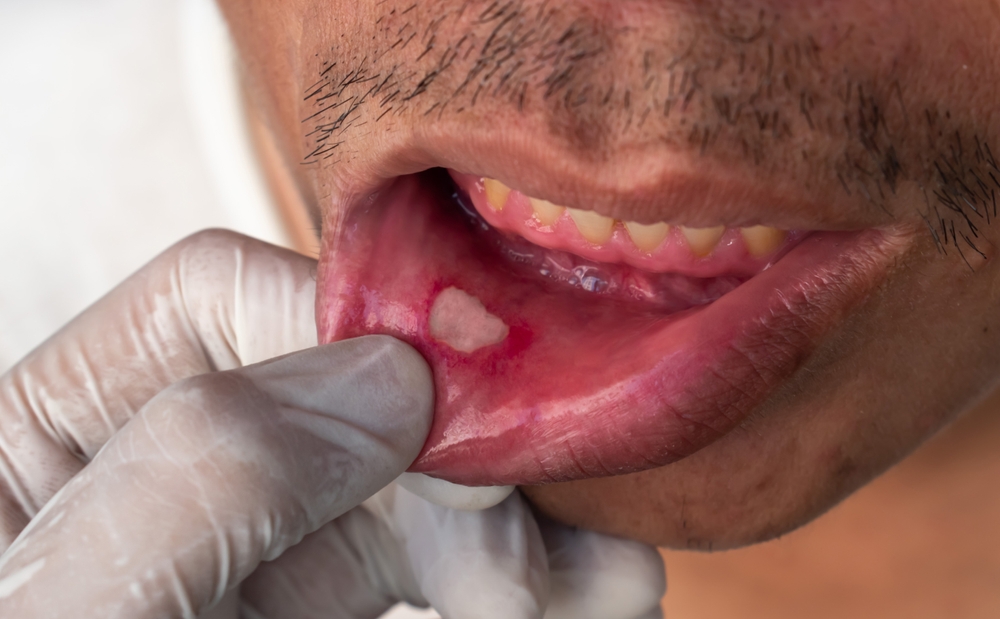Canker sores, though often overlooked, are a common oral health issue that can cause considerable discomfort. These small, painful ulcers typically form inside the mouth and can interfere with daily activities such as eating, drinking, and talking. Understanding their causes, treatments, and when to seek medical help is crucial for effective management.
What are canker sores?
Canker sores, also known as aphthous ulcers, are round or oval lesions that form on the soft tissues inside the mouth. They are typically white or yellow with a red border, and they can appear anywhere within the mouth, including the inside of the cheeks, lips, tongue, or the roof of the mouth. While these sores are usually not serious and tend to heal on their own within one to two weeks, they can be excruciatingly painful, making eating or even speaking difficult.
Canker sores are not the same as cold sores, which are caused by the herpes simplex virus and are typically found on the lips. Unlike cold sores, canker sores are not contagious. They are a localized issue, usually occurring in individuals who are genetically predisposed or who have certain risk factors.
Causes of canker sores
Canker sores can result from a variety of factors. Understanding these triggers can help prevent outbreaks or minimize their severity.
Trauma: One of the most common causes of canker sores is trauma or injury to the inside of the mouth. Accidental biting, aggressive brushing, or dental work can all create small wounds that can develop into sores.
Hormonal changes: Hormonal fluctuations, particularly those associated with menstruation, pregnancy, or puberty, can trigger canker sores. Women are more likely to experience outbreaks due to these hormonal shifts.
Stress: Emotional stress is a known trigger for canker sores. Stress can weaken the immune system, making the body more vulnerable to oral health issues. The relationship between stress and canker sores is still not fully understood, but many people report outbreaks following periods of high anxiety or tension.
Food allergies: Certain foods, especially acidic or spicy foods, can irritate the lining of the mouth and provoke canker sores. Foods like citrus fruits, tomatoes, and chocolate are commonly linked to outbreaks in sensitive individuals.
Vitamin deficiencies: A lack of essential vitamins and minerals, such as vitamin B12, zinc, folate, and iron, has been associated with an increased risk of canker sores. These deficiencies can impair the body’s ability to heal and may contribute to recurring outbreaks.
Treatment options for canker sores
While canker sores often heal on their own, there are several treatment options available to help alleviate the pain and speed up recovery.
Mouth rinses: Rinsing the mouth with an antibacterial or antimicrobial mouthwash can help reduce pain and promote healing. Rinsing with a saltwater solution or a mixture of baking soda and water may also soothe irritation and prevent infection.
Benzocaine gel: Over-the-counter gels or creams containing benzocaine, a topical anesthetic, can provide temporary relief by numbing the affected area and reducing pain. These treatments form a protective barrier over the sore, which can help reduce further irritation.
Avoiding irritating foods: Certain foods can exacerbate canker sores, particularly those that are spicy, acidic, or abrasive. Avoiding these foods during an outbreak can help minimize irritation and allow the sore to heal more quickly.
Cold sores vs. canker sores
It’s important to distinguish between canker sores and cold sores, as the treatments for each differ. Cold sores, caused by the herpes simplex virus, typically appear outside the mouth on the lips or around the nose and are highly contagious. In contrast, canker sores are confined to the inside of the mouth and are not contagious.
Additionally, other conditions, such as oral thrush and leukoplakia, can resemble canker sores. Oral thrush, a fungal infection, causes white patches inside the mouth, while leukoplakia results in white or grayish patches on the cheeks, gums, or tongue. These conditions require different treatments, making an accurate diagnosis essential.
When to see a doctor
Most canker sores resolve on their own within a week or two. However, there are certain situations in which it’s important to seek medical advice. If you experience a canker sore that lasts longer than two weeks, or if the sore is unusually large or painful, you should consult a healthcare provider.
In some cases, persistent or severe canker sores may indicate an underlying health condition, such as celiac disease, inflammatory bowel disease (IBD), or autoimmune disorders. If you have frequent outbreaks or if your symptoms are accompanied by other unusual signs, such as fever or difficulty swallowing, seeking medical advice is essential.
Understanding and managing canker sores
Canker sores, while often a temporary nuisance, can significantly affect a person’s quality of life if they are not properly managed. By understanding the causes and symptoms of canker sores, you can take steps to prevent outbreaks and minimize their impact. Simple measures like avoiding irritating foods, practicing stress management, and maintaining good oral hygiene can go a long way in preventing the onset of sores.
If you experience recurrent canker sores or have concerns about your oral health, don’t hesitate to seek professional help. A healthcare provider can offer personalized advice, potential treatments, and in some cases, perform tests to determine any underlying causes of frequent outbreaks. With the right care and management strategies, canker sores can be effectively handled, allowing you to maintain comfort and oral health.















